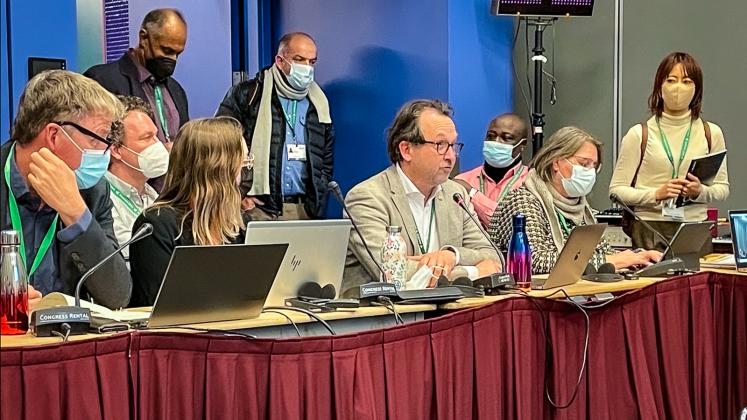On 8 December 2022 UNU-IAS co-hosted a side event at the UN Biodiversity Conference (COP15) in Montreal, which discussed the whole-of-society approach to biodiversity governance as essential for realising transformative change. The session presented the findings of a new report from the Netherlands Environmental Assessment Agency (PBL) “Exploring Nature-positive Pathways”, which analyses alternative strategies for achieving global biodiversity goals.
The report concludes that neither business-as-usual nor incremental changes will do enough to reverse the damage done to nature and biodiversity. Nature-positive development can only be achieved through transformative change, addressing the underlying societal factors that are the root causes of biodiversity loss and that drive development. A whole-of-society approach recognises and builds on a society-wide mobilisation of actors, ranging from non-state actors (such as indigenous peoples and local communities, NGOs, and the private sector) to all levels of government.
Suneetha Subramanian (Research Fellow, UNU-IAS) highlighted the Satoyama Thematic Review, a publication series by UNU-IAS and the International Partnership for the Satoyama Initiative (IPSI) featuring case studies on socio-ecological production landscapes and seascapes (SEPLS). The case studies demonstrate how diverse stakeholders work together to conserve and sustainably use local biodiversity. She noted that local governments were better positioned than national governments to be agents of transformative change by becoming facilitators and co-partners of local initiatives, enabling nature-positive approaches to be mainstreamed into policy.
Reflecting on what needed to be achieved at COP15 and beyond to effectively implement the post-2020 global biodiversity framework (GBF), the speakers called for transparency in monitoring, reporting, and review. They stressed that transformative change is about ensuring equity and social justice, and therefore it is important to create mechanisms to ensure indigenous peoples and local communities are included in the reporting processes.
The event was co-organised by PBL; ICLEI - Local Governments for Sustainability (ICLEI); Capitals Coalition; the International Partnership for the Satoyama Initiative (IPSI), whose secretariat is hosted by UNU-IAS; and the Institute for Sustainable Development and International Relations (IDDRI).





